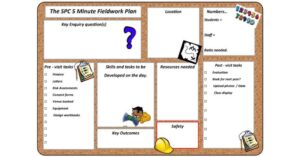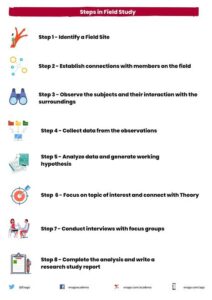Back to: ZOOLOGY 500 Level
Welcome to class!
Hello, my star learner! It’s always a joy to learn with you. Today’s class is going to be exciting and very hands-on. We’re talking about something that brings everything we’ve learned so far to life—Students Plan Mini Fieldwork Projects in Teams. This is where theory meets action, and you get to think like a real ecologist in the field, alongside your teammates!
Students Plan Mini Fieldwork Projects In Teams
Why Fieldwork Projects Matter
Fieldwork allows you to observe, measure, and analyse ecological patterns in real environments. Whether you’re studying soil quality in your local community, birds in a university forest patch, or fish diversity in a nearby stream—your mini project is a chance to apply your skills in a real-world setting.

Planning these projects as a team builds your collaboration skills, helps you see different perspectives, and makes the experience more enjoyable and enriching.
Steps in Planning a Mini Fieldwork Project
Choose a Focus Area
Start by agreeing on a clear research topic or question. For example:
How does littering affect insect diversity around campus?
What’s the species richness of grasses in an open field vs. under tree shade?
Is the water quality of a local stream safe for aquatic life?

Make sure your question is specific, measurable, and doable within your team’s capacity.
Define Objectives and Hypotheses
What exactly do you want to find out? Write down your objectives clearly. Then come up with a hypothesis—your prediction of what you expect to discover.
Select Suitable Methodology
Choose the best methods to collect your data. You might use:
Quadrat sampling for vegetation
Transects for insects or birds
Kick sampling for aquatic invertebrates
Water testing kits for water quality
Plan the number of samples, tools you’ll use, and how you’ll organise your field day.
Assign Team Roles
Each person in your group should have a role. For example:
Team Leader: Organises logistics and keeps the team on track
Data Collector: Records observations and fills data sheets
Equipment Manager: Ensures tools are ready and returned safely
Analyst: Leads in analysing and interpreting the data
Prepare for Fieldwork Logistics
Get permission from relevant authorities
Pack equipment, protective wear, data sheets, and refreshments

Agree on safety rules and field ethics (like not harming animals or disturbing habitats unnecessarily)
Analyse and Report Findings
Once your data is collected, clean it up, organise it in tables or charts, and discuss what your results mean. Then, write a simple report and share your findings with your class—or even your community.
Summary
- Mini fieldwork projects help students apply ecological knowledge practically.
- Teamwork encourages shared learning, responsibility, and innovation.
- Planning includes choosing a topic, methods, assigning roles, collecting data, and analysing results.
- Projects must be ethical, safe, and purposeful, with real-world impact.
Evaluation
- Why is teamwork important in planning a mini fieldwork project?
- Mention two examples of ecological topics a student team might study.
- What are three things your team should do before going into the field?
- What is one way to analyse the results of your fieldwork?
You are not just learning ecology—you are living it. This is your chance to ask questions, seek answers, and make a real difference. Your creativity, teamwork, and passion will shape the future of our environment. Keep going strong—Afrilearn is cheering for you every step of the way!
